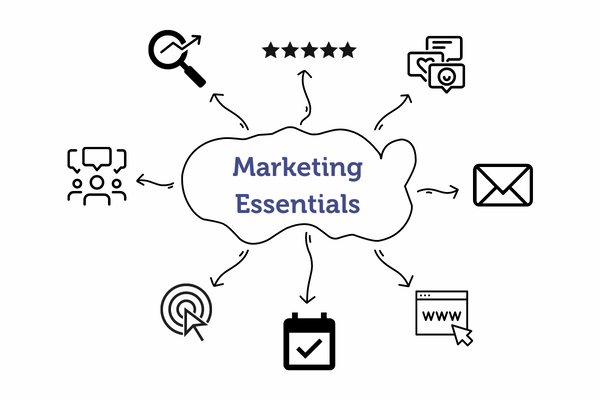Marketing for Mental Health Professionals: Navigating the Digital Landscape

In a world that is increasingly connected through digital channels, mental health professionals are recognizing the importance of marketing to reach those in need. While the core focus of therapists remains on providing compassionate care, a well-executed marketing strategy can help them connect with a broader audience and establish a thriving practice. In this comprehensive guide, we will explore the intricacies of marketing for mental health professionals, the role of therapist marketing agencies, and the impact of digital marketing and social media on therapists’ outreach efforts.
The Landscape of Therapist Marketing Agencies
In recent years, a specialized niche has emerged in the marketing world: therapist marketing agencies. These agencies are dedicated to helping mental health professionals build their online presence, attract new clients, and ultimately grow their practices. The unique challenges faced by therapists, such as maintaining confidentiality and addressing sensitive topics, require a tailored approach to marketing.
Therapist marketing agencies understand these challenges and offer services that align with the ethical considerations of the mental health profession. From website development to search engine optimization (SEO) and content creation, these agencies provide a range of services to enhance the visibility of mental health professionals in the digital landscape.
Digital Marketing for Mental Health Professionals: A Strategic Approach
Digital marketing has become a powerful tool for mental health professionals seeking to connect with individuals in need of their services. Here are key strategies within the realm of digital marketing that can be particularly effective for therapists:
1. Website Development:
A professional and user-friendly website is the cornerstone of any successful digital marketing strategy. Therapists should ensure that their websites are not only aesthetically pleasing but also provide valuable information about their services, approach, and contact details.
2. Search Engine Optimization (SEO):
Optimizing online content for search engines is crucial for therapists to appear in relevant search results. Targeting keywords related to mental health services in a specific location can significantly improve a therapist’s visibility.
3. Content Marketing:
Sharing informative and relevant content through blogs, articles, or videos establishes therapists as experts in their field. Content that addresses common mental health concerns can attract individuals actively seeking help.
4. Online Advertising:
Paid advertising on platforms like Google and social media can be a targeted approach to reach specific demographics. Mental health professionals can use online ads to promote workshops, webinars, or specific therapeutic services.
5. Email Marketing:
Building an email list allows therapists to maintain a connection with current and potential clients. Regular newsletters can provide valuable insights, mental health tips, and updates about the therapist’s practice.
The Rise of Social Media for Therapists
Social media has become an integral part of our daily lives, and therapists are leveraging these platforms to connect with their communities. Here are some ways mental health professionals can use social media effectively:
1. Educational Content:
Sharing informative content related to mental health on platforms like Instagram, Facebook, or LinkedIn can position therapists as valuable resources. Infographics, short videos, and written posts can engage and educate the audience.
2. Community Building:
Creating a supportive online community can foster a sense of belonging for individuals facing mental health challenges. Therapists can facilitate discussions, share resources, and provide a safe space for dialogue.
3. Live Sessions and Webinars:
Platforms with live streaming capabilities, such as Instagram Live or Facebook Live, enable therapists to host real-time Q&A sessions, workshops, or webinars. This interactive approach can enhance engagement and reach a broader audience.
4. Testimonials and Success Stories:
Sharing client testimonials and success stories (with consent) can build trust and credibility. Personal narratives have a powerful impact, helping potential clients relate to the therapeutic process.
Navigating Ethical Considerations in Digital Marketing for Mental Health Professionals
While the digital landscape offers numerous opportunities, mental health professionals must navigate ethical considerations. The privacy and confidentiality of clients are of utmost importance. Therapists should be cautious about the information shared online, ensuring it aligns with professional guidelines and regulations.
Furthermore, obtaining informed consent from clients before sharing any content related to their experiences is essential. Therapists should also educate themselves on the specific ethical guidelines provided by their licensing boards and professional organizations.
Conclusion: Crafting a Digital Presence for Lasting Impact
In an era where digital connections are more prevalent than ever, the power of digital marketing for mental health professionals can make a lasting impact. The emergence of therapist marketing agencies highlights the recognition of the unique needs of the mental health profession in the digital landscape.
By strategically utilizing website development, SEO, content marketing, and social media, therapists can extend their reach, provide valuable resources to their communities, and ultimately grow their practices. It is crucial, however, to approach digital marketing with a mindful consideration of ethical guidelines to ensure that the well-being and confidentiality of clients remain the top priority.
As the field continues to evolve, mental health professionals who embrace the digital realm will find new avenues for connection, education, and support, ultimately contributing to a society that values mental health and well-being.








